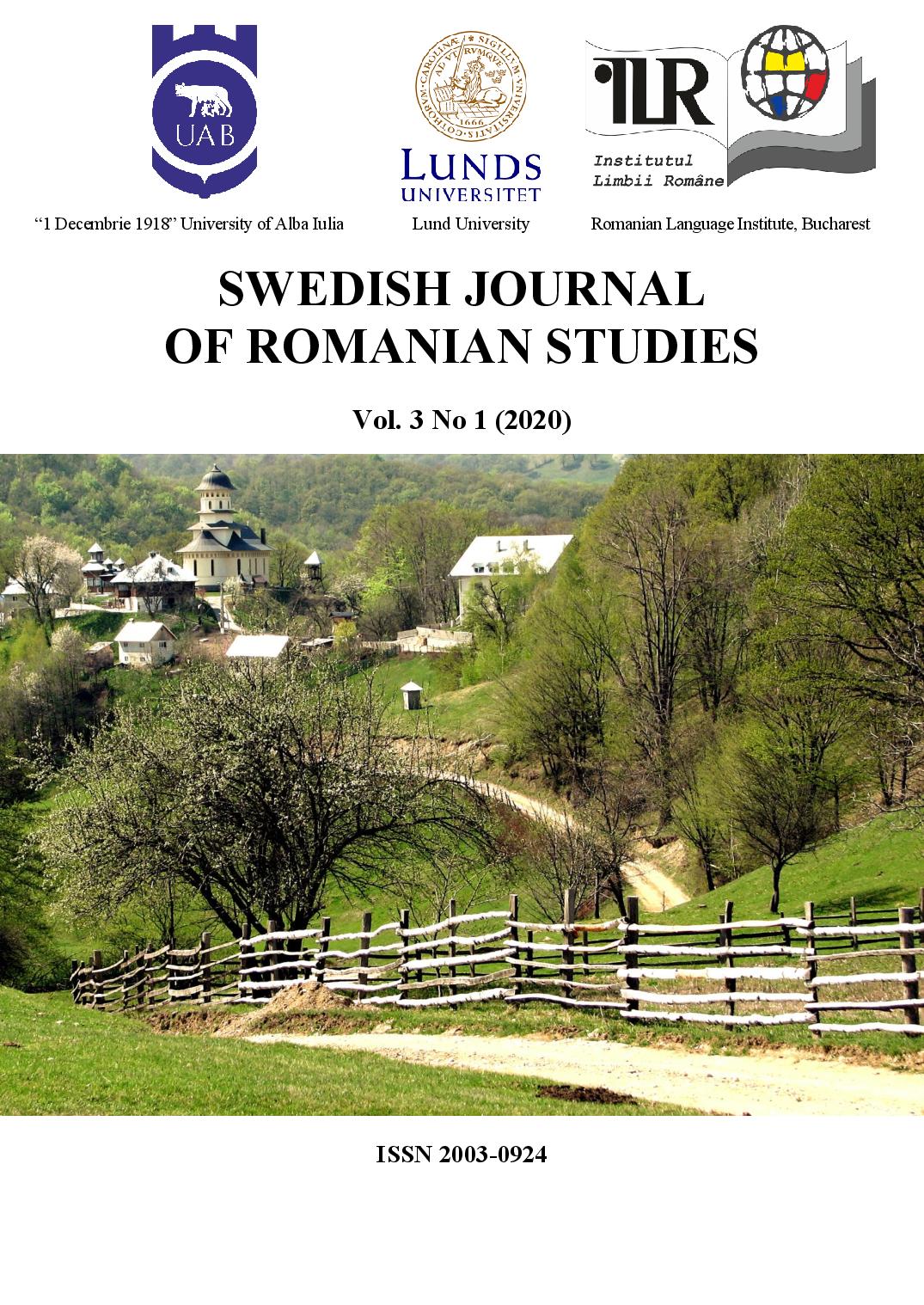On Eminescu’s philosophy of history: towards an English anthology of relevant texts
DOI:
https://doi.org/10.35824/sjrs.v3i1.21360Keywords:
Mihai Eminescu; philosophy of history; traductology; Hegel;Abstract
The present paper aims to offer Anglophone researchers a selection of translated quotes from Mihai Eminescu’s non-literary oeuvre, relevant to the philosophy of history of the most complex Romanian author of the nineteenth century. It should thus become possible to reconsider Eminescu’s position within the concert of European philosophers of history. The fragments gathered here stem mainly from his activity as a cultural and political journalist, throughout which he voiced, albeit unsystematically, his views on history. Although he did not ultimately articulate an academic philosophy of history per se, these fragments, now available in English for the first time, may give valuable insights into Eminescu’s conception of history. Above all else, they meaningfully complement whatever can be gleaned from Eminescu’s already translated poetry or literary prose. Hopefully the fragments presented here will aid scholars in establishing more precisely what Eminescu’s views on history owe to Schopenhauer’s metaphysics and what to the proper philosophy of history he could find in Hegel. This is a double allegiance scholars have also recognized in Maiorescu’s work. By the same token, it would further be important to chart Eminescu’s ambivalence towards Hegel, an ambivalence also visible in the works of Romanian philosopher Vasile Conta. Finally, the fragments below may help to bring to the fore the complex interplay between Hegelian theodicy and Kantian teleology in Eminescu’s historical thought.
References
Ciomoş, V. (2006). Le Hégélianisme roumain: Constantin Noïca et la Logique de Hegel/ Romanian Hegelianism. Constantin Noica and the Logic of Hegel. In J. -L. Vieillard-Baron, & Y. C. Zarka (Eds.), Hegel et le droit naturel moderne/Hegel and Modern Natural Law. Paris: Vrin. pp. 215-240.
Eminescu, M. (1995). The Complete Prose Writings of Mihai Eminescu. (Ioan Giurgea, Trans). Iaşi: Center of Romanian Studies.
Eminescu, M. (1999). Influenţa austriacă asupra românilor din Principate/ The Austrian Influence on the Romanians in the Principalities. In Opere/Complete Works. Vol. III. Publicistică. Corespondenţă. Fragmentarium./ Journalism. Letters. Fragmentarium. Bucharest: Univers Enciclopedic.
Eminescu, M. (2000). Opere/ Complete Works Vol. V. Publicistică/ Journalism. Bucharest: Univers Enciclopedic.
Folschweiller, C. (2010a). Les ambiguïtés de la thèse de l'État naturel et du modèle organiciste à Junimea/ The Ambiguities of the Natural State Thesis and of the Organicist Model by Junimea. Studia Politica: Romanian Political Science Review, 10(2), 245-264.
Folschweiller, C. (2010b). Eminescu et l’État. Un pacte social sur des fondements schopenhaueriens/ Eminescu and the State. A Social Contract on Schopenhauerian Foundations, Studia Politica: Romanian Political Science Review, 10(1), 103-121.
Kanterian, E. (2013). Hegel's Tale in Romania. In L. Herzog (Ed.), Hegel's Thought in Europe: Currents, Crosscurrents and Undercurrents (pp. 49-68). Palgrave Macmillan: Basingstoke. https://doi.org/10.1057/9781137309228_4
Noica, N. (2009). Six Maladies of the Contemporary Spirit. Plymouth: University of Plymouth Press.
Downloads
Published
How to Cite
Issue
Section
License
Copyright (c) 2020 Catalin Pavel

This work is licensed under a Creative Commons Attribution-NonCommercial 4.0 International License.
Authors who publish with this journal agree to the following terms:
a. Authors retain copyright and grant the journal right of first publication with the work simultaneously licensed under a Creative Commons Attribution-NonCommercial 4.0 International License that allows others to share the work with an acknowledgement of the work's authorship and initial publication in this journal.
b. Authors are able to enter into separate, additional contractual arrangements for the non-exclusive distribution of the journal's published version of the work (e.g., post it to an institutional repository or publish it in a book), with an acknowledgement of its initial publication in this journal.
c. Authors are permitted and encouraged to post their work online (e.g., in institutional repositories or on their website) prior to and during the submission process, as it can lead to productive exchanges, as well as earlier and greater citation of published work (See The Effect of Open Access).

